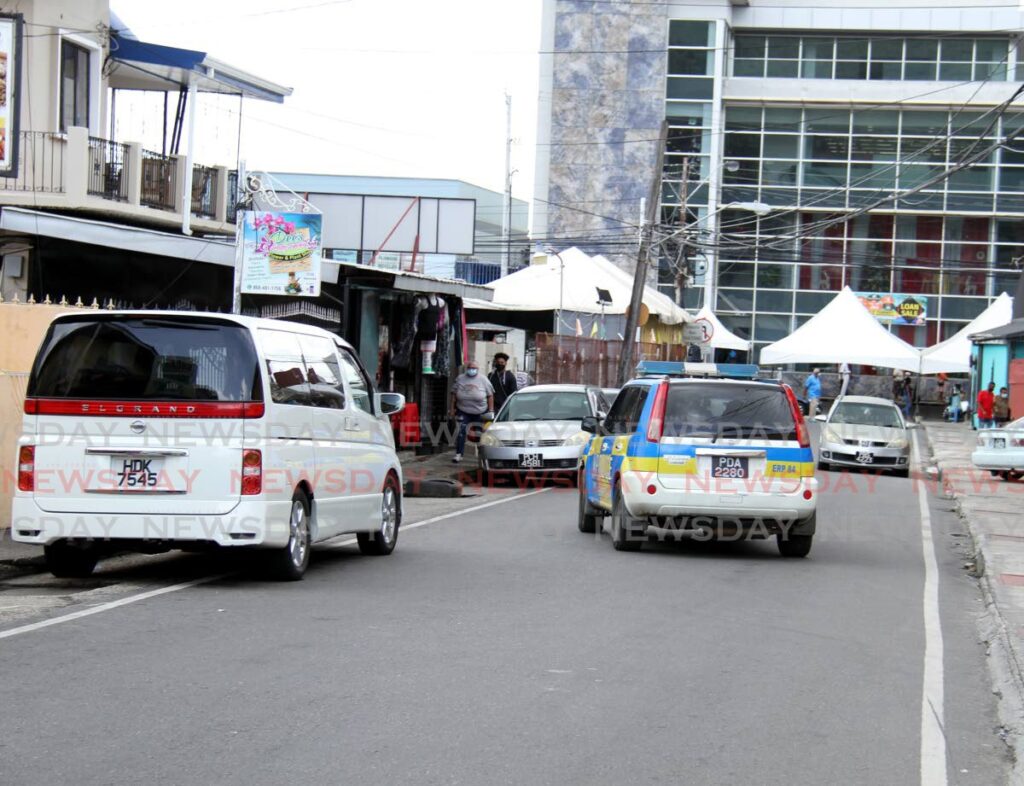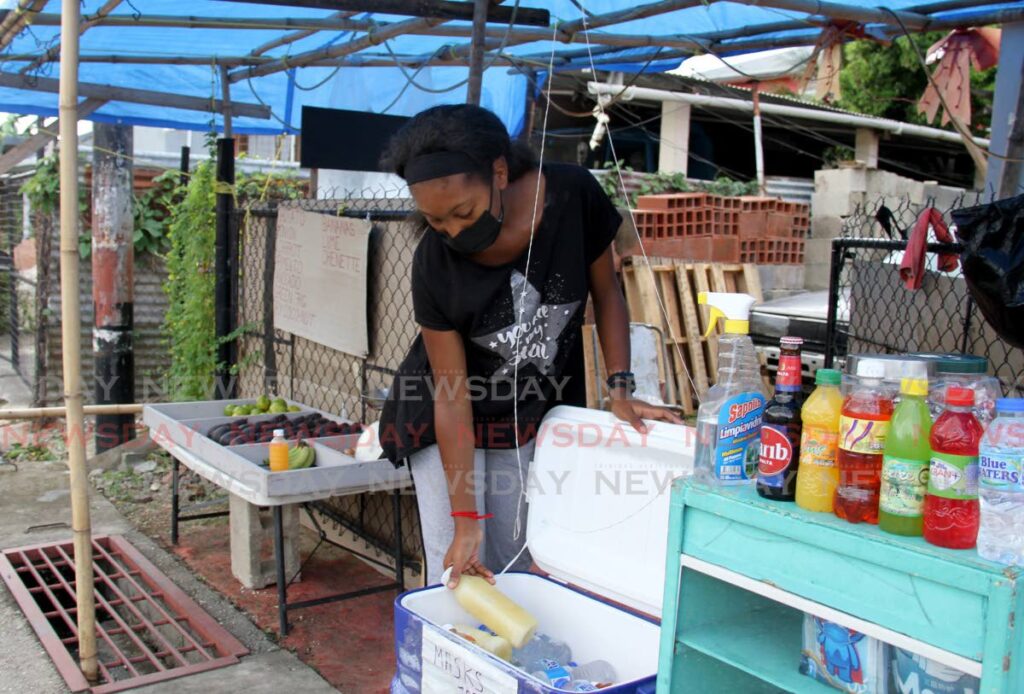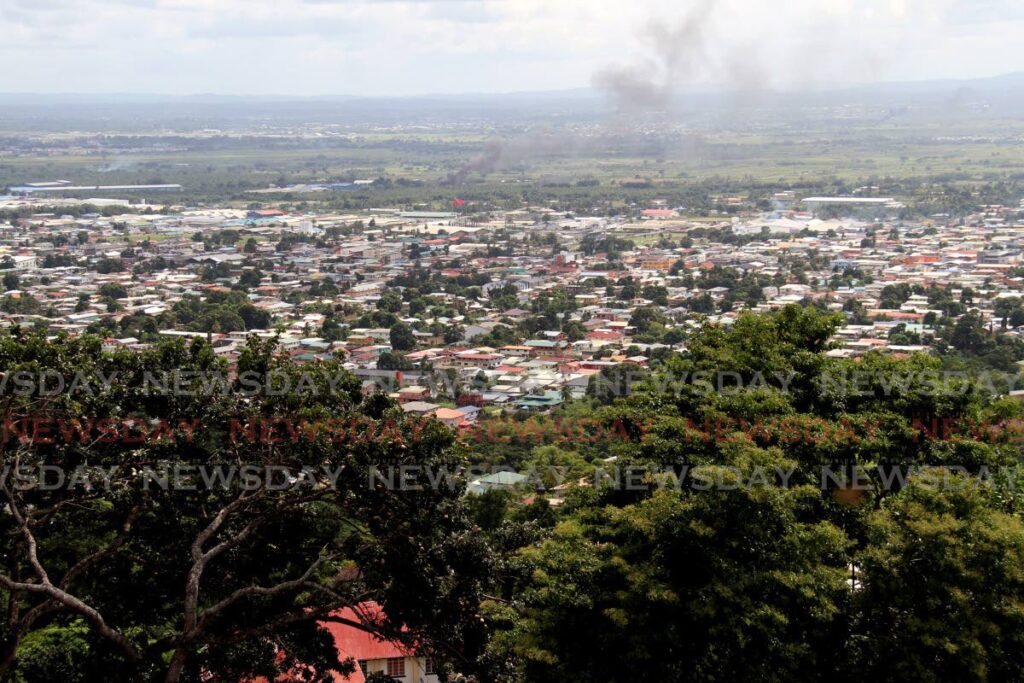Terror on Tunapuna hills as rival gangs clash

VIOLENT CLASHES among warring criminal gangs in the hills of Tunapuna have sparked a new wave of fear among residents who have a self-imposed curfew even though the state of emergency (SoE) for the country is over.
While some residents, living closer to the conflict zones, have opted to abandon their homes, others say they remain helpless and afraid as gunmen fire at each other with high-powered weapons leaving them as sitting ducks behind closed doors .
Last Monday night, at First Trace, less than two kilometres away from the bustling Eastern Main Road, 42-year-old Jafe Phillip was shot dead.
His girlfriend was grazed by a bullet while a 29-year-old man was shot in his right shoulder.
Within a matter of seconds, gunmen fired 147 shots before disappearing into the night.
This incident was the latest in a series of attacks in the Tunapuna and nearby St Augustine communities.
In July, five people – Amanda and Mustapha Mohammed, Jasper Jones, Matthew Calliste Perreira and Kaliele Jackson were shot dead in upper St Michael's Village, Tunapuna.
In October, 68-year-old Vaughn Derrick Charles and Josiah Copeland,19, were gunned down in a drive-by shooting on Streatham Lodge Street, Tunapuna.
Four other men were wounded in the shooting and 51 rounds of ammunition were found by police.
Earlier this month 56-year-old businessman Anand Dhanraj was shot dead in his car on Pasea Main Road, Tunapuna.
Sunday Newsday visited several areas in Tunapuna and spoke to residents who have seen the influence criminals wield in these neighbourhoods and who said while the SoE has been lifted their movements after dark are still restricted.
They were so fearful of reprisals they only agreed to speak on the condition of anonymity.
While they were concerned for their own safety they were also concerned over the state of their community, which was changing before their very eyes.

For these mostly elderly and mature residents, the Tunapuna of their youth is a far cry from today's neighbourhood where burglarproofing and empty streets after dusk are the norm.
"Back in the days not a door needed to be locked.
"All of us used to live as one in the community. I could have knocked on my neighbour's door and walk right in," a 67-year-old man said while speaking at the bottom of the hill on First Trace.
The man, who described himself as a lifelong Tunapuna resident, said he moved from his original home at the top of the hill when he saw the first signs of major crime in the area about six years ago.
He said while the signs in the community still refer to the hill as part of First Trace, locals know it by a different name.
"Right now they're calling it Gun Hill. You can't go up there and talk out of timing, you can't go up there and talk at all.
"Those little youths know me, they still have some respect for me if they see me on the street but when the battle start they don't care about you."
Another man, who lives near the foot of the hill, recalled the volley of shots he heard after the murder of Jafe Phillip on Monday night.
He said while the hill itself is usually the "hotspot" in their community, the fact that shells from bullets fired were able to fall on their roofs and windows was an uncomfortable reminder of how close they are to danger.
"The violence isn't really on this side, it's further up the road on the hill, it passes through here though.
"That shooting on Monday night, we heard gunshots and shells falling on everybody's roof and windows.

"In the night you don't walk out here. From tonight (Wednesday night) there won't be anymore curfew but we still aren't going to take that chance."
Like the first resident, this man agreed that the community was changing and blamed the increasing crime, brazen shootings, on an influx of drugs and guns.
Asked whether the police presence was enough to subdue criminals from running rampant, the man said while patrols were being done, they simply were not enough to maintain order in a community where criminals were just as vigilant as the police.
"From the top of the hill those fellas can see when a police vehicle is coming up, that means they get enough time to hide whatever they have on them."
He also warned that criminals watched all strangers closely in the area even during the daytime and cautioned the Sunday Newsday team from venturing up the hill.
"Don't go up there. If you stand at the bottom of the hill and look up carefully you might see a few of them looking down at you.
"For us who are familiar to them we won't get any problems but we're not so sure about yourself."
First Trace, located just off Maingot Road, is a narrow, winding street which goes up the hill.
One man said he used to plant short crops for sale in the market but stopped after a series of shootings on First Trace about four years ago.
He said while the stream of income he earned from vending supplemented his pension, it simply wasn't worth the risk.
"I had a little plot (of land) on the other side of the hill on First Trace where I would go and plant some pimento and so on. I have been doing that for over 40 years before this violence start.
"I would meet some of those little fellas on the road and they would say I have nothing to fear but I not taking the chance going up that hill. I just left the crops up there."
The residents agreed that the reason for the shootings usually arose out of disputes between gangs in First Trace and rivals from St Michael's Village, off St John's Road further west.
The two communities are within walking distance of each other – only 1.1 kilometres apart.
The residents agreed that most of the perpetrators were young men who were born and raised in the neighbourhood.
They also lamented that many of them knew each other from secondary school adding to the senseless nature of the killings.
Residents on St John's Road, St Augustine said they experienced similar fears to their neighbours on First Trace.
St John's Road stretches from the Eastern Main Road through several semi-rural communities that share borders with Tunapuna to the east.
When looking at a map of the area, the most prominent institutions that stand out are the Mount St Benedict Abbey to the northwest and several University of the West Indies (UWI) off campus institutions, such as the Sir Arthur Lewis (SAL) hall which provides housing for staff and students and the UWI Open Campus.
While driving on St John's Road the landscape changes from a commercial area to a suburban setting with manicured lawns, churches and other buildings.
On reaching the corner of St John's Trace and St John's Road, the setting changes again as less activity is seen on the streets.
A resident said he was also fearful for his safety in the area.
He said while the gang tensions were at an all-time high since the murder of five people in St Michael's Village, he was not convinced drugs were the cause.
"It's a lot of old, personal grudges. There are gangs around but it's not like there's someone up there selling weed or anything.
"It's a nasty piece of war on this side and it doesn't seem like it's going to end anytime soon.
"I living in the area and if I have a friend coming to meet me I have to let these fellas know I'm expecting company.
"I have seen many times that someone would come up here and once you're a stranger they pull out things, if you know what I mean."
Asked why he felt the police were unable to clamp down on the shootings between St John's Road and First Trace, the man said both communities, and others in northeastern Trinidad, were linked via a network of backroads and tracks used by criminals to escape.
"Further north of these roads here, there is a ridge that can take you anywhere you want to go.
"You can even go to Lopinot and all if you know what you are doing."
Northern Division police acknowledged that there were some challenges in clamping down on gangs given the layout of the communities.
A senior officer, who has worked in the Tunapuna station district for many years, said the police has seen the growth of gangs and while more attention has been placed on different areas, more was needed from officers and the public.
Responding to suggestions on placing a temporary police post in the "hotspot" areas, the officer said the solution was not that simple.
"It's just like in Laventille where if you put a mobile or temporary police post the criminals would just find ways to move in between these posts.
"One of the things in those areas is you can go from community to community by passing through tracks and side streets. You can cross into Maingot Road from St John's Road and vice versa."
He said to better monitor the movements of criminals through the communities more resources were needed to map these areas and trap them when necessary.
"It's a multiplicity of things that is needed.
"We might even need drones and so on to monitor those hills and areas to track down these criminals."
Outside of the need for more human and technological resources, the officer said the community has been supportive of the police efforts.
Noting that while reports were often made in a timely manner and information was forthcoming, the difficulty arose when witnesses were asked to come forward to give evidence in court.
The police were not the only ones who noticed the uptick in crime and the challenges in dealing with them.
Tunapuna MP Esmond Forde, when contacted for comment on Thursday, said he was also concerned over the frequency of shootings in recent times.
Born and raised on Fairley Street, Tunapuna, one of several roads that connect with Maingot Road, Forde said his community has changed.
"I am in my 50s I know it wasn't always like that. Tunapuna was always a loving, sporting place.
"We used to go to Blackpool, Constantine Park to play football and cricket, Mount St Benedict, but as you would know the idea of crime is not only restricted to Tunapuna."
He said while he continued to reach out and work with the police, he understood that they could not be everywhere at once and would continue to do his best to help constituents who were most in need of jobs.
Forde added that while he has been working with public and private sector agencies to provide employment, parents also had a responsibility to guide and protect their children.
Sunday Newsday also spoke to president of the Greater Tunapuna Chamber of Industry and Commerce Melissa Senhouse who said the latest wave of deadly shootings was worrying to the town's business community.
She noted that while most of the violent crimes happened away from the main commercial district along Eastern Main Road, it was still cause for concern.
"Yes, the shootings happened in the hills in the night but what is preventing them from coming down the road?
"We are seeing if someone is being targeted, location or a crowd isn't going to dissuade the attacker.
"Here we are in the Christmas season we are seeing more people moving around, what is there to prevent those individuals from coming down onto the main road and turning it into a wild, wild west?"
Asked what suggestions she had to better secure the town and its residents, Senhouse said crime prevention begins at the household level with families.
Residents also agreed that more should be done to steer children away from gangs.
While the fear of crime in the community was a very real threat to residents, it was not the only aspect of life in Tunapuna as many young residents found legitimate ways of earning a living.
While walking through Tunapuna Road, Sunday Newsday spoke with 18-year-old Zariah Vialmosa who along with her boyfriend Andrew Joseph, 19, sold vegetables, snacks and homemade fruit juices at a roadside stall.
Vialmosa graduated from ASJA Girls' College, Tunapuna, earlier this year and plans to attend the UWI and pursue performing arts.
Before registration, however, she is helping her mother operate the stall.
"We've been doing this about six months now.
"It was my mom's idea, when the pandemic began we needed some extra money.
"We realised that drivers would have to leave their car to go into a shop to buy something, so we just set up this roadside stall so that drivers on the road could get items without having to park their car and leave it."
Vialmosa said her mother recommended she work at the stall to sharpen her business and communication skills and appreciated the lessons learnt so far.
When asked what advice they had for other young people in the community who were tempted to turn to a life of crime, Vialmosa and Andrew's suggestion was simple but relevant.
"Stay in school, don't do drugs and don't follow the crowd.
"Just stay off the streets."

Comments
"Terror on Tunapuna hills as rival gangs clash"